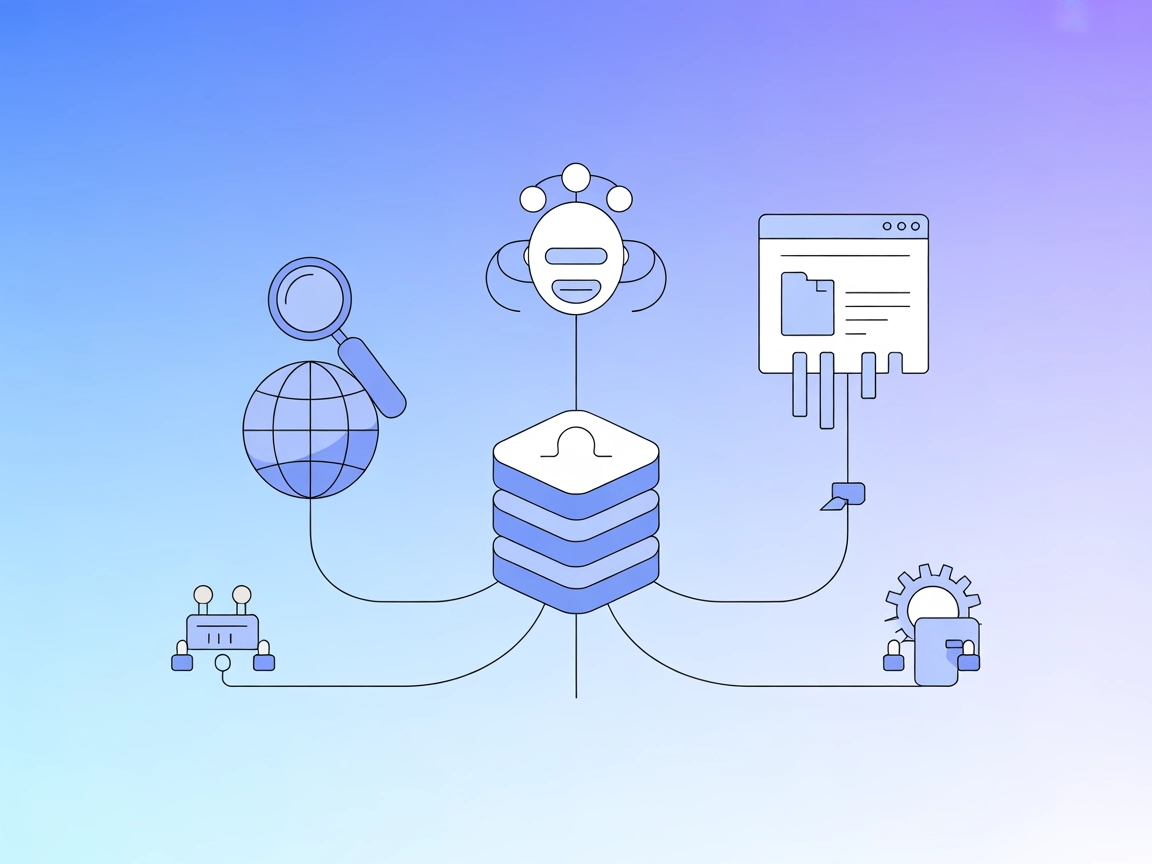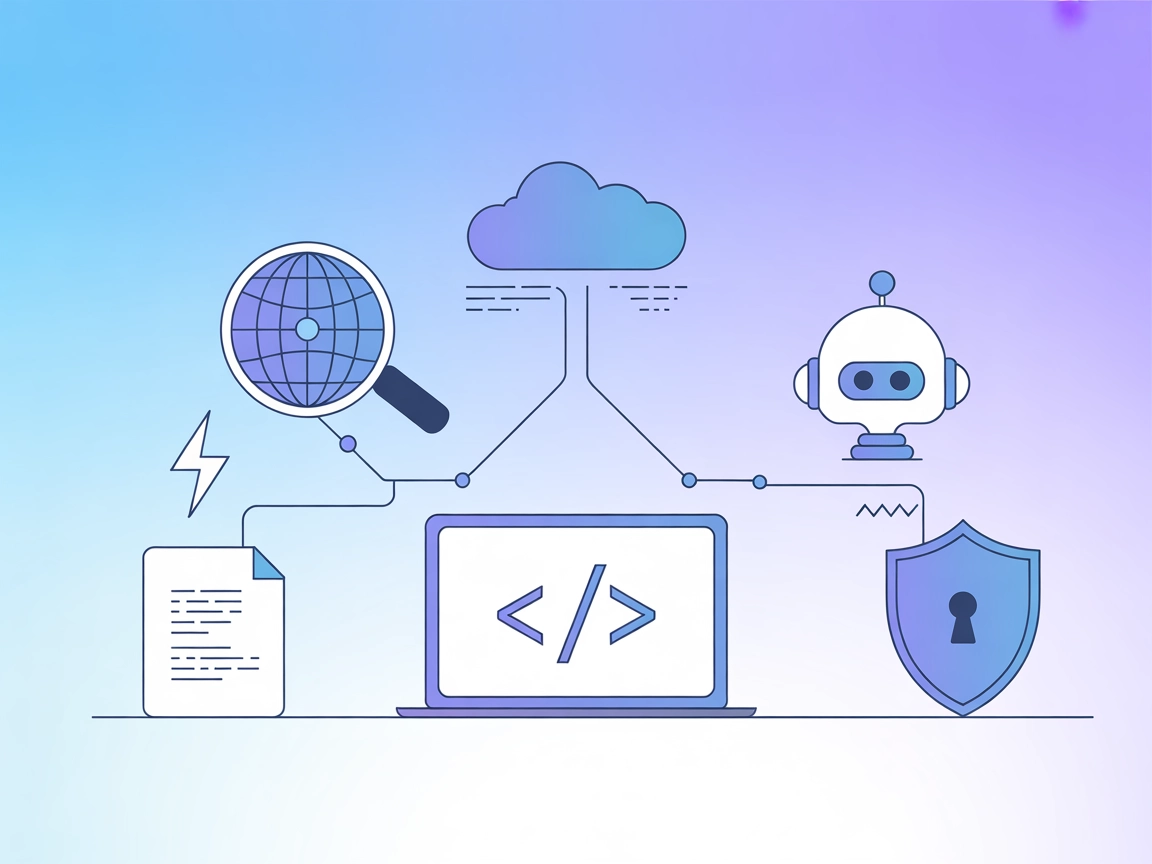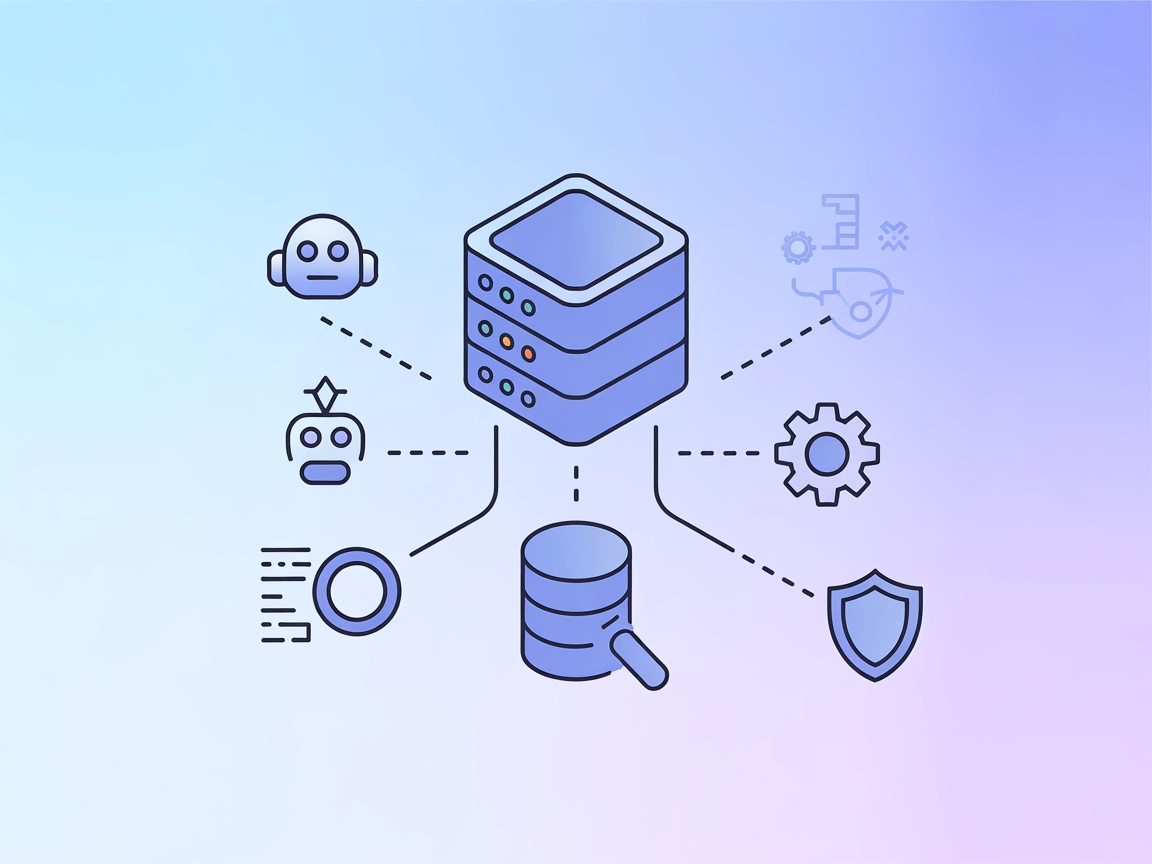
mcp-google-search MCP Server
The mcp-google-search MCP Server bridges AI assistants and the web, enabling real-time search and content extraction using the Google Custom Search API. It empo...

Empower your AI agents with real-time web search and research capabilities using the Search1API MCP Server—ideal for up-to-date answers, dynamic content, and developer productivity.
FlowHunt provides an additional security layer between your internal systems and AI tools, giving you granular control over which tools are accessible from your MCP servers. MCP servers hosted in our infrastructure can be seamlessly integrated with FlowHunt's chatbot as well as popular AI platforms like ChatGPT, Claude, and various AI editors.
The Search1API MCP Server is a Model Context Protocol (MCP) server that provides AI assistants with search and web crawling capabilities via the Search1API. By acting as a bridge between AI agents and the powerful Search1API, this server enables seamless integration of internet search functionality into development workflows. This allows AI clients to execute web searches, retrieve live information, and access up-to-date content from the internet directly within their environment. Such capabilities are valuable for tasks like real-time data retrieval, automated research, and enhanced context gathering during code development or content generation. The Search1API MCP Server thus empowers AI-driven applications to perform dynamic, context-aware operations that depend on the latest online information.
No prompt templates are explicitly documented in the repository at this time.
No resources are explicitly documented as MCP resources in the repository at this time.
No detailed tool definitions are documented in the accessible files (such as a server.py). However, from context, the core tool is likely:
{
"mcpServers": {
"search1api": {
"command": "npx",
"args": [
"-y",
"search1api-mcp"
],
"env": {
"SEARCH1API_KEY": "YOUR_SEARCH1API_KEY"
}
}
}
}
{
"mcpServers": {
"search1api": {
"command": "npx",
"args": [
"-y",
"search1api-mcp"
],
"env": {
"SEARCH1API_KEY": "YOUR_SEARCH1API_KEY"
}
}
}
}
{
"mcpServers": {
"search1api": {
"command": "npx",
"args": [
"-y",
"search1api-mcp"
],
"env": {
"SEARCH1API_KEY": "YOUR_SEARCH1API_KEY"
}
}
}
}
{
"mcpServers": {
"search1api": {
"command": "npx",
"args": [
"-y",
"search1api-mcp"
],
"env": {
"SEARCH1API_KEY": "YOUR_SEARCH1API_KEY"
}
}
}
}
Securing API Keys:
Always store your API keys securely using environment variables. Example configuration:
{
"mcpServers": {
"search1api": {
"command": "npx",
"args": ["-y", "search1api-mcp"],
"env": {
"SEARCH1API_KEY": "YOUR_SEARCH1API_KEY"
}
}
}
}
Using MCP in FlowHunt
To integrate MCP servers into your FlowHunt workflow, start by adding the MCP component to your flow and connecting it to your AI agent:

Click on the MCP component to open the configuration panel. In the system MCP configuration section, insert your MCP server details using this JSON format:
{
"search1api": {
"transport": "streamable_http",
"url": "https://yourmcpserver.example/pathtothemcp/url"
}
}
Once configured, the AI agent is now able to use this MCP as a tool with access to all its functions and capabilities. Remember to change “search1api” to the actual name of your MCP server and replace the URL with your own MCP server URL.
| Section | Availability | Details/Notes |
|---|---|---|
| Overview | ✅ | |
| List of Prompts | ⛔ | No prompt templates documented |
| List of Resources | ⛔ | No explicit MCP resources documented |
| List of Tools | ✅/⛔ | “search” tool inferred from context, not directly documented |
| Securing API Keys | ✅ | .env file and env var methods documented |
| Sampling Support (less important in evaluation) | ⛔ | No mention of sampling support |
The Search1API MCP Server is easy to set up, offers a well-documented API key management procedure, and provides a useful search tool for AI assistants. However, it lacks extensive prompt, resource, or tool documentation and does not mention advanced MCP features like Roots or Sampling. Its core function—web search—is valuable, but the overall MCP feature completeness is limited at this time.
| Has a LICENSE | ✅ (MIT) |
|---|---|
| Has at least one tool | ✅ |
| Number of Forks | 30 |
| Number of Stars | 138 |
The Search1API MCP Server is a Model Context Protocol server that enables AI assistants to perform live web searches and crawl the internet via the Search1API. It allows your AI workflows to retrieve up-to-date, real-time information from the web directly within your development environment.
Typical use cases include integrating live internet search into AI workflows, automating research and content validation tasks, enabling dynamic content generation with current events and statistics, and providing coding assistants with instant access to documentation and troubleshooting resources.
Add the MCP server configuration to your FlowHunt flow by including the Search1API MCP component and specifying your API key in the configuration panel. Detailed setup instructions are provided for Windsurf, Claude, Cursor, and Cline clients.
It is highly recommended to store your Search1API API key in environment variables rather than hard-coding it in configuration files. Refer to your client’s documentation for best practices on securing API keys.
Currently, the server is focused on providing robust web search functionality and does not document advanced MCP features such as Roots or Sampling. It is MIT licensed and provides at least one searchable tool.
Integrate Search1API MCP Server in FlowHunt to unlock real-time internet search, dynamic research, and automated content enrichment for your AI agents.

The mcp-google-search MCP Server bridges AI assistants and the web, enabling real-time search and content extraction using the Google Custom Search API. It empo...

The OpenSearch MCP Server enables seamless integration of OpenSearch with FlowHunt and other AI agents, allowing programmatic access to search, analytics, and c...

The Serper MCP Server bridges AI assistants with Google Search via the Serper API, enabling real-time web, image, video, news, maps, reviews, shopping, and acad...
Cookie Consent
We use cookies to enhance your browsing experience and analyze our traffic. See our privacy policy.